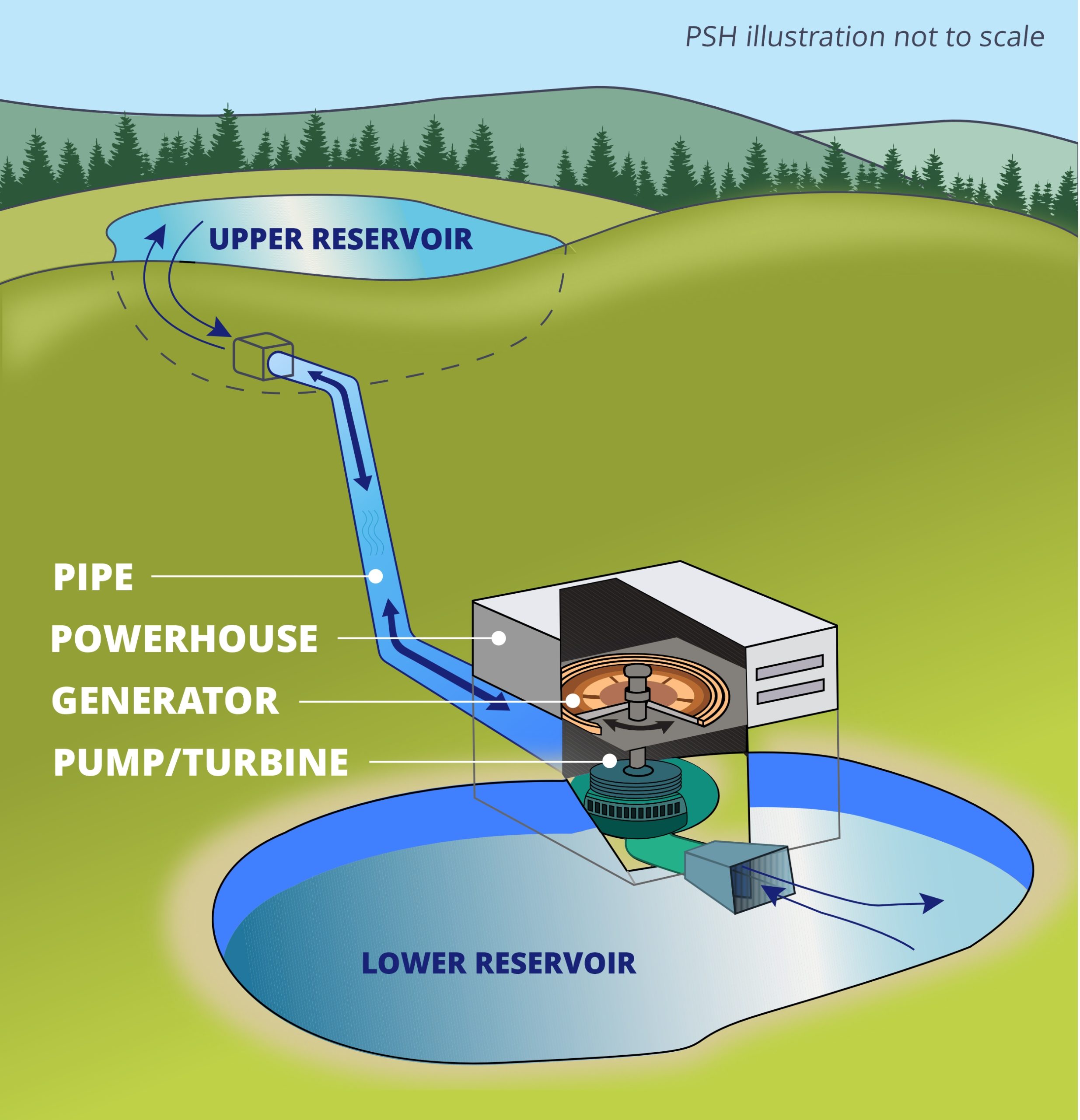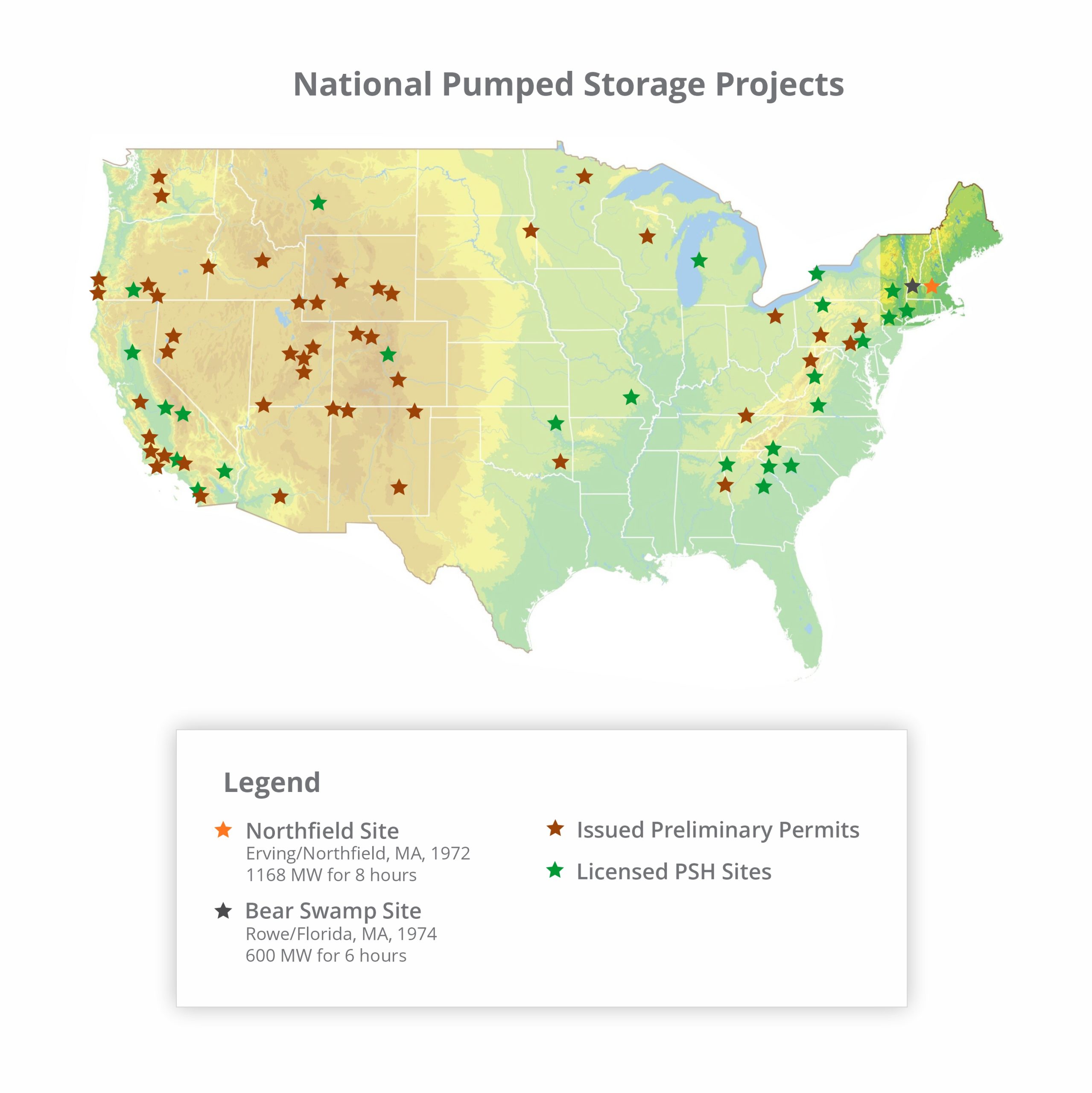What is Pumped Storage Hydropower (PSH)?
Balancing Power with Pumped Storage Hydropower
As Maine moves toward cleaner energy, we face a challenge: solar and wind power don’t always match when people need electricity. That’s where energy storage comes in.
How It Works – The Water Battery 
A PSH facility consists of an upper reservoir, a lower reservoir, a penstock (or pipe) that conveys water between reservoirs, and a powerhouse. The powerhouse contains the pumps, turbines, and generators.
Periods of excess power generation on the grid:
- Water is pumped from the lower reservoir through the penstock to the upper reservoir and is stored until called upon.
Periods of high demand for power on the grid:
- Water is released from the upper reservoir, passes through the turbines (generating electricity), and returns to the lower reservoir.
This daily cycle efficiently delivers power to the grid when needed most. PSH facilities provide long-term grid stability and reliability to rate payers.
PSH Facilities in the U.S.
According to FERC, there are 24 constructed and operating pumped storage hydropower facilities in the country today, which account for nearly half of utility-scale energy storage.
| FERC Licenses as of April 8, 2025 | |
|---|---|
| Currently licensed | 18.9 GW |
| Pending or relicense | 11.7 GW |
| Issued preliminary permits | 38.4 GW |
| Pending preliminary permits | 16.7 GW |
For more information on existing and proposed projects, please visit: ferc.gov/licensing/pumped-

